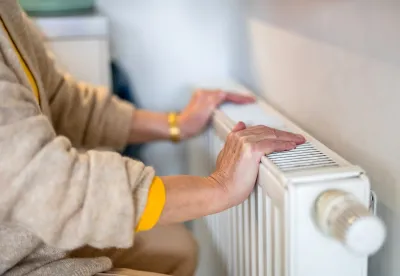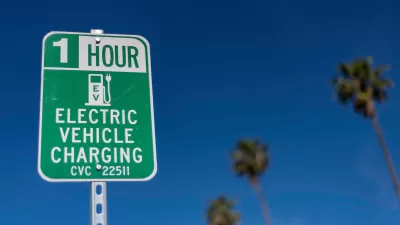The full staff of a federal program that distributes heating and cooling assistance for low-income families was laid off, jeopardizing the program’s operations.

The entire staff of the Low Income Home Energy Assistance Program (LIHEAP) was fired by the Trump administration, jeopardizing a program that helps the lowest-income Americans pay for heating and cooling.
As Brad Plumer reports in The New York Times, the program was created by Congress in 1981 and served roughly 6.2 million people with a staff of around 25. Congress had allocated $4.1 billion for fiscal year 2025, with about 90 percent distributed to states in October for heating costs. The remaining 10 percent won’t be released until the Department of Health and Human Services (HHS) decides how much to allocate to each state.
According to Plumer, “States also use the money to weatherize homes and provide emergency assistance to households at risk of being disconnected from their utility.” In some states like Mississippi, the program also funds items such as blankets, fans, space heaters, and portable air conditioners.
Excessive heat and cold hits poor households, who often live in older housing with worse insulation and weatherproofing, hardest. “While they might use less energy, a building using more power per square foot than it should can make the cost disproportionate,” notes Bonnie Bolden in an article for the Mississippi Clarion Ledger.
FULL STORY: Entire Staff Is Fired at Office That Helps Poorer Americans Pay for Heating

Planetizen Federal Action Tracker
A weekly monitor of how Trump’s orders and actions are impacting planners and planning in America.

Chicago’s Ghost Rails
Just beneath the surface of the modern city lie the remnants of its expansive early 20th-century streetcar system.

San Antonio and Austin are Fusing Into one Massive Megaregion
The region spanning the two central Texas cities is growing fast, posing challenges for local infrastructure and water supplies.

Since Zion's Shuttles Went Electric “The Smog is Gone”
Visitors to Zion National Park can enjoy the canyon via the nation’s first fully electric park shuttle system.

Trump Distributing DOT Safety Funds at 1/10 Rate of Biden
Funds for Safe Streets and other transportation safety and equity programs are being held up by administrative reviews and conflicts with the Trump administration’s priorities.

German Cities Subsidize Taxis for Women Amid Wave of Violence
Free or low-cost taxi rides can help women navigate cities more safely, but critics say the programs don't address the root causes of violence against women.
Urban Design for Planners 1: Software Tools
This six-course series explores essential urban design concepts using open source software and equips planners with the tools they need to participate fully in the urban design process.
Planning for Universal Design
Learn the tools for implementing Universal Design in planning regulations.
planning NEXT
Appalachian Highlands Housing Partners
Mpact (founded as Rail~Volution)
City of Camden Redevelopment Agency
City of Astoria
City of Portland
City of Laramie





























